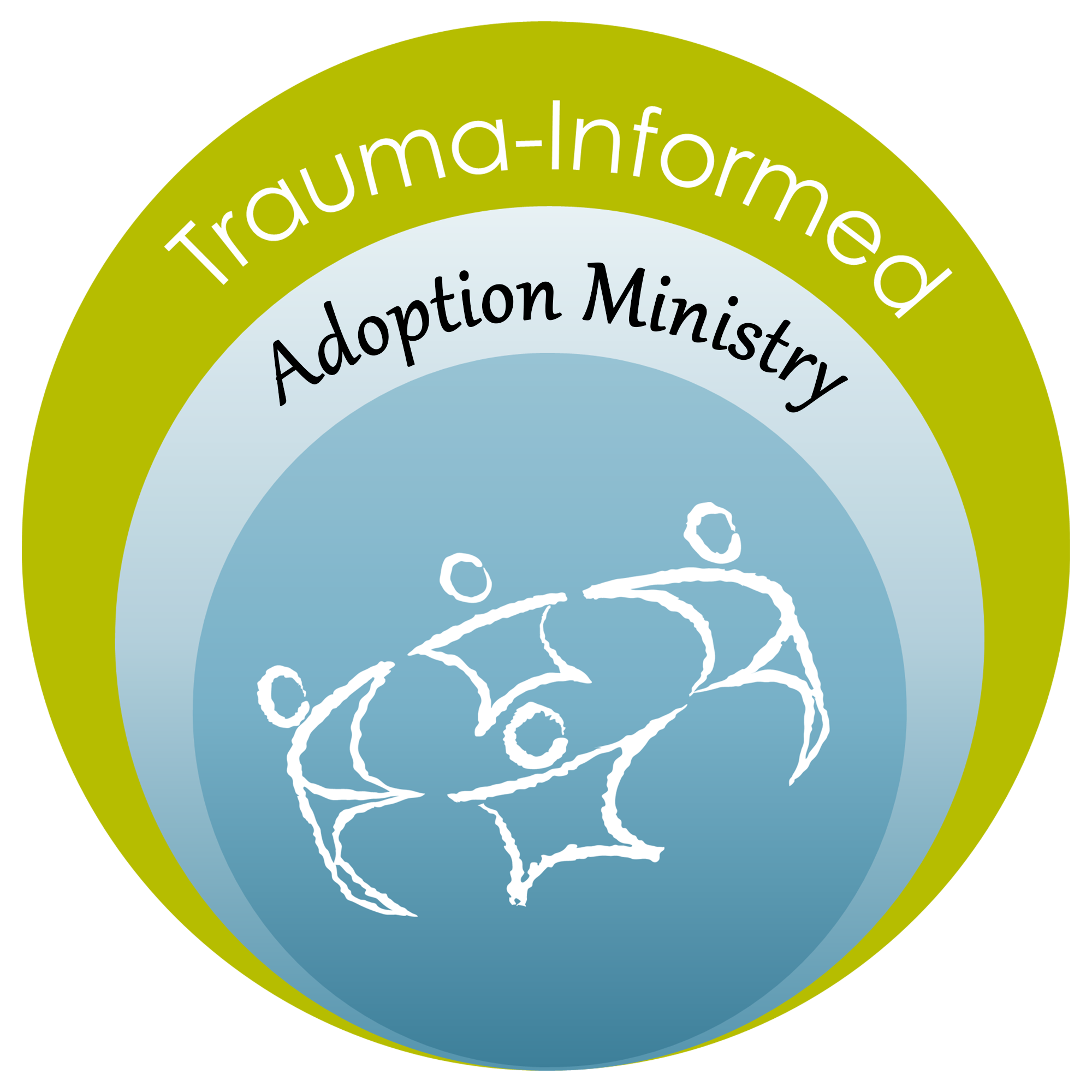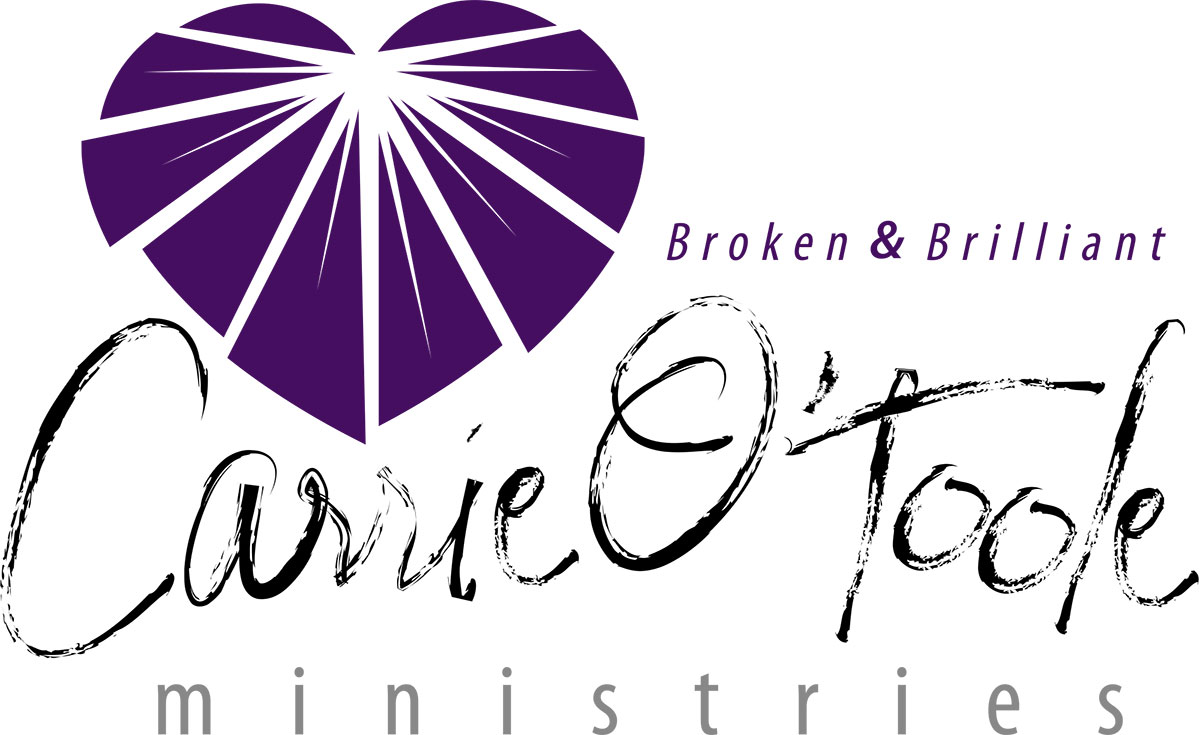
Trauma-Informed Adoption Ministries
By: Aimee Hart, M.A.
“Trauma-informed.” Nearly everyone is touting themselves as being “trauma-informed” nowadays. Is your church trauma-informed? Defining the terms in conversations such as this is important because of the irony that if everyone is, no one is. Clinically speaking, trauma is defined as exposure to actual or threatened death, serious injury, or sexual violence experienced directly, personally witnessed, learning that it has happened to a close relative or friend, or experiencing repeated exposure to it (American Psychiatric Association, 2013). Not everyone who has experienced a trauma becomes traumatized by it though. In fact, about 80% of survivors never develop traumatic symptomatology. When someone is traumatized, generally speaking, it is because the traumatic experience (one time event or long-term relational or situational experiences) overwhelmed their individual coping strategies and/or they had no person or network of people to emotionally support them through it or help them make some kind of sense of it. Often, the symptoms of having been traumatized diffuse in three or four weeks, but sometimes symptoms evolve into much more complex suffering that involves “miscommunications” between the brain and body which can last for years if not treated. The experience of ongoing posttraumatic symptoms is referred to as posttraumatic stress.
Posttraumatic stress symptoms tend to manifest in certain areas including unwanted thoughts/ memories, sometimes followed by automatic reactions to them, attempts to avoid the unwanted thoughts/memories or environments, and negative alterations of mood and thought processes that can look like depression or anxiety, jumpiness, concentration and memory troubles among a host of other things too numerous to differentiate here. Thoroughly understanding these things is foundational to becoming truly trauma-informed because they speak directly to processes and procedures that will support a survivor versus those that present higher than necessary risks of triggering someone’s posttraumatic sensitivities. It is important to understand that it is not possible to eliminate all the ways any traumatized person could be triggered in your church and that this is not the point whatsoever. Rather, a trauma-informed church will have helpful accommodations available for the traumatized person who may need extra support at some random moment throughout their time in your church.
This article offers trauma-informed suggestions to churches that highlight Orphan Sunday and aim to support adoptive families throughout the year.
1). Orphan Sunday. Church people are known supporters of adoption – especially on Orphan Sunday, when they showcase a beautiful story and take up a generous offering for a family raising finances to adopt or for parachurch organizations that support orphans. Adoptive families often wonder where all that support went after their adoption was finalized. Many families find themselves dealing with undisclosed special needs or extreme emotional issues they were not prepared to deal with. They frantically make doctors and counselors appointments trying, trying, and trying again to help their child settle into their family. This family often plugs along in the trenches, becoming isolated in the chaos, confusion, and exhaustion of it all. A trauma-informed church finds ways to support these families on Orphan Sunday and all year.
2). Become attachment informed. Adoptive parents must work INCREDIBLY HARD to gain the trust of their children and to differentiate themselves from all other caretakers. This can be a monumental task for children who have come out of international orphanages or if they have been through multiple foster homes. Most of the time, it takes several years so while you may think things look “normal,” the family knows they are not “there” yet and they need you to be trauma-informed so that their children can continue to attend and participate in church activities.
3). Trauma-informed boundaries. Children who have had multiple caretakers or who have been sexually abused/exploited are often confused about who the “good guys” are. Firm boundaries are critical for their healing. Sadly, well-meaning, church people can be the worst at overstepping the physical and emotional boundaries necessary for healing, merely out of lack of education. Gift-giving is one unexpected place boundary crosses frequently happen, but hugging or holding children with traumatic backgrounds might be the most significant boundary issue that must be addressed.
3). Become “trigger” informed. Children are obviously not able to explain that they have been triggered into a fearful memory so it is important to understand that while all children might do “x”, not all children have the same motivations for doing “x”. Children’s trauma triggers are often environmental/sensory in nature and rarely able to be discerned by caretakers, teachers, or leaders. Children can be set off by smells, sounds, snacks, or even crafts. Sometimes it is the tone of voice or just a look on the face of a teacher. It can simply be being told ‘no’. It is imperative to remember that no one on the planet knows their adopted child better than they do! Develop a parent-directed trigger-management plan and try your best to meet the child’s needs so that the parents can worship and fellowship. They need this hour with Jesus and His community more than they show it!
4). Accommodate the special special needs. Special needs related to emotional trauma are not always as obvious as physical special needs. Being trauma-informed means understanding that there are mental, emotional, and environmental special needs too. One major consideration for adoptive families must be how to handle snacks for children with histories of food scarcity. This is an attachment/trust issue and parents who are dealing with this need immense support in this area. Anything being offered without the parent’s explicit support has the potential to sabotage their fragile relationship with their child. Honor the parents’ requests by consistently holding their boundaries around food. Consider these to be just as important as a peanut allergy and make sure all volunteers know each child’s specific needs.
6). Traumatic life-stories. As the truth is being exposed around the adoption industry, be diligent to protect the privacy of these children and families. Understand that you are not entitled to know details of their trauma and if you do, it is because someone considered you a safe person. Do not further wound them with any gossip or judgment or by ignoring boundaries. Remember that adoption starts with a terribly traumatic experience which usually continues for various lengths of time, long before permanent help or safety is secured. This can mean issues like parental abandonment, poverty, or death, are in the background but it can also include natural disasters, trafficking of babies for profit or children of all ages as sex slaves, and even Satanic Ritual Abuse might be part of their stories. Being trauma-informed means understanding that being safe and feeling safe are not the same thing when experiencing posttraumatic symptoms. Being trauma-informed means not asking questions, understanding that doing so can thrust the child or parents into traumatic memories causing them to feel unsafe! Simply show up with the love of Jesus flowing through you and be a trustworthy, safe, trauma-informed friend.
7). RAD is real. Attachment disorders are unspeakably difficult to overcome. Simply stated, sometimes children are so deeply traumatized that they actually react negatively to the attachment/vulnerability they feel themselves developing with their new family. This is called Reactive Attachment Disorder and invariably, you will not be experiencing what the family experiences at home. Trauma-informed boundaries are essential with these children. Oftentimes, RAD leads to the child being placed in a residential treatment facility, boarding school, or sometimes even into a new family. This is a tragedy for every person in the family and another trauma they have to endure. Statistically, the more families that adopt, the higher the chances that a family in your church will face this terrible situation. They all need your unwavering support. Even though no one has died and there is no funeral to attend, there is legitimate and deep grief and this family needs their trauma-informed church community to show up for them without questions or judgment and full of Christlike compassion.
8). Look for the glass children. This term was originally coined to describe the siblings of children with RAD but it applies to many siblings of adopted children. The emotional needs of the biological children who were already in the family before the adoption are often overlooked when the traumatic symptoms of the other children require all of the physical and emotional attention of their parents. These children report feeling like they have turned into glass because people just look right through them as if they are not even there. These children are attached and generally very well-behaved which is exactly how they get swallowed up by the trauma drama and end up traumatized too. Being trauma-informed means you see and meet their needs too!
9). Self-assess. This needs to be done individually and corporately. As an individual, how do you get your emotional needs met? Be extra mindful that you are not using the children’s needs as a way to address the holes in your own heart. This is far from uncommon! Trauma-informed churches do not get the cart before the horse. Are you supporting fundraisers to bring these children home without having trauma-informed teachers, volunteers, and other supports in place for the entire family when their child arrives? For the best possible impact over the long haul, prioritize interventions. If your church is just getting started, focus on training volunteers and getting plans and procedures into place. If you already have adoptive families in your congregation, reassess and make the trauma-informed adjustments needed for optimal support.
Please visit www.carrieotoole.com to find numerous additional resources for parents of traumatized youth or to make an appointment with a coach today.
If you are an adoptive parent or church leader who would like to continue this discussion with Aimee, she can be reached at [email protected].




